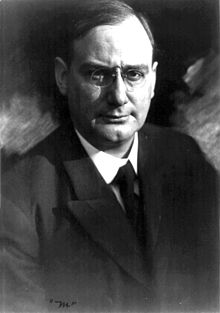Joseph W. Folk
| Joseph W. Folk | |
|---|---|
 |
|
| 31st Governor of Missouri | |
|
In office January 9, 1905 – January 11, 1909 |
|
| Lieutenant | John C. McKinley |
| Preceded by | Alexander M. Dockery |
| Succeeded by | Herbert S. Hadley |
| Personal details | |
| Born |
Joseph Wingate Folk October 28, 1869 Brownsville, Tennessee, U.S. |
| Died | May 28, 1923 (aged 53) New York City, New York, U.S. |
| Political party | Democratic Party |
| Alma mater | Vanderbilt University |
Joseph "Holy Joe" Wingate Folk (October 28, 1869 – May 28, 1923) was an American lawyer, reformer, and politician from St. Louis, Missouri. He served as Governor of Missouri from 1905 to 1909.
Joseph Folk was born in Brownsville, Tennessee to Henry Bate and Martha Estes Folk and raised in a strict Baptist household. His early education was completed at Brownsville Academy, after which he worked for several companies in Memphis, Tennessee as a clerk and bookkeeper. Folk studied law and graduated from Vanderbilt University in 1890. He joined his father's law firm and focused on criminal law.
Early in his career, Folk ran for a seat in the Tennessee House of Representatives in 1892, wrote newspaper articles, spoke on special occasions, and joined the Knights of Pythias. In 1893, he moved to St. Louis to join his uncle's law practice. Folk married Gertrude Glass on November 10, 1896. He helped to organize the Jefferson Club, a local young Democrats' organization, and acted as the group's president in 1898–1899.
Folk made his reputation as a lawyer for transit workers in the St. Louis Streetcar Strike of 1900. His work as mediator earned him a Democratic nomination for circuit attorney in 1900, and he won the election against Judge Eugene Mcquillen.
Folk earned his nickname by attacking local corruption and party machines. With the assistance of Lincoln Steffens's articles published in McClure's magazine, Folk led investigations of the city's Democratic boss, Col. Ed Butler and the corrupt "boodle ring" of corporate bribery in the state and municipal government. Although some of the convictions Folk obtained were overturned on appeal, his work had national and international consequences. Folk gained the respect of Republican President Theodore Roosevelt as he and other crusading prosecutors and muckraking journalists brought national attention to municipal corruption. Folk's prosecution of the Suburban Railway Company stimulated a change in US treaties with Mexico to include bribery as grounds for extradition. As district attorney, Folk encountered opposition from many businessmen and politicians, who believed that his exposing corrupt practices hurt the city's reputation, and thus the Democratic party as well as the business climate.
...
Wikipedia
